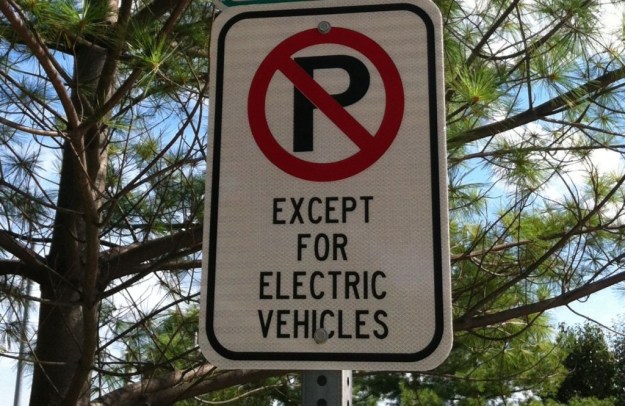
There is a hearing today on bill HB 839 to prohibit “ICEing” of EV charging stations in the state of Maryland. I will be appearing before the House Environment and Transportation Committee to testify in person along with several other EV drivers and supporters. Here is the written testimony that I have provided to the members of the Committee.
Bill: HB 839 (Plug-In Electric Drive Vehicles – Reserved Parking Spaces)
Committee: Environment and Transportation
Hearing Date: March 3, 2016
Position: SUPPORT WITH AMENDMENTS
Chairman Barve and Members of the Committee,
I am an electric car driver from Columbia, Maryland. I have worked closely with Councilmember Hans Riemer of Montgomery County and Jen Terrasa of Howard County on legislation to discourage non-electric cars from parking at charging stations.
I support the general goal of HB 839, but have reservations about three specific details and would like to see the following amendments.
AMENDMENT NO. 1
On page 2, in lines 23 and 24, strike “THAT IS CONNECTED TO CHARGING EQUIPMENT FOR CHARGING PURPOSES”
AMENDMENT NO. 2
On page 3, strike in their entirety lines 3 and 4, “STATE THAT A MOTOR VEHICLE
PARKED IN VIOLATION OF THIS SECTION MAY BE TICKETED,TOWED, OR REMOVED AT THE OWNER’S EXPENSE.” and substitute “SHALL BE IN CONFORMANCE WITH THE REQUIREMENTS FOR UNIFORM TRAFFIC CONTROL DEVICES UNDER TRANSPORTATION ARTICLE, §25-104, ANNOTATED CODE OF MARYLAND.”
AMENDMENT NO. 3
On page 3, strike in their entirety lines 5 and 6 “(D) A PLUG–IN ELECTRIC DRIVE
VEHICLE CHARGING SPACE SHALL BE INDICATED BY GREEN PAVEMENT MARKINGS.”
The concern with the requirement that the vehicle be “connected to charging equipment for charging purposes” is that it could leave an innocent EV driver vulnerable to having a car towed or ticketed if someone innocently or maliciously unplugs them. It also prevents the practice of sharing one charging station among several adjacent spaces at long-term parking facilities such as at airports.
An essential element of HB 839 is the definition of a “plug-in electric drive vehicle charging space.” I believe that if the signage and pavement marking requirements are unusually difficult to procure or burdensome to apply, then the required signs or marking are much less likely to be deployed and the bill will not have the desired outcome.
Typically, notice that violators of parking regulations may be towed is placed on large signs at the entrance of parking lots in accordance with state and local trespass tow laws. In my opinion, there is no need to repeat the warning on the regulatory sign designating each charging space.
I propose adopting the sign requirements used in the Howard and Montgomery County laws. Those laws say that the signs must conform to State and Federal standards for parking control signs. The standards that would apply are from the Manual on Uniform Traffic Control Devices (MUTCD). Regulatory signs that are MUTCD compliant are easy to purchase off-the-shelf and have proven to be very effective.
Following are the relevant sections of the Howard and Montgomery County Codes:
Howard Co, MD: A sign that designates a space under this subsection must be at least 12 inches by 18 inches and meet any applicable State or Federal standards for parking control signs.
Montgomery Co, MD: is marked for the use of plug-in vehicles with an official sign that conforms to regulations adopted pursuant to Section 31-23 – (conform in design, color, size and placement to the standards established in the most recent edition of the “Manual on Uniform Traffic Control Devices for Streets and Highways.”)
With respect to green pavement markings to designate charging spaces, this requirement is currently unique to Washington State. No other states or local jurisdictions that I am aware of require this.
I believe that the requirement to indicate a charging space by green pavement markings in HB 839 is imprecise and subject to misinterpretation by parking facility managers and law enforcement. Green pavement markings could be a voluntary option or regulated at the local level. For example, the blue rectangles with the International Symbol of Access often found on the pavement at ADA parking spaces are not required by Federal or Maryland law. If ADA parking pavement marking is mandated, it is done so at the local level in Maryland.
Thank you for your efforts to support electric vehicle charging infrastructure in Maryland.
I respectfully request that the Committee grant HB 839 a favorable report only with the stated amendments.
@Lanny














